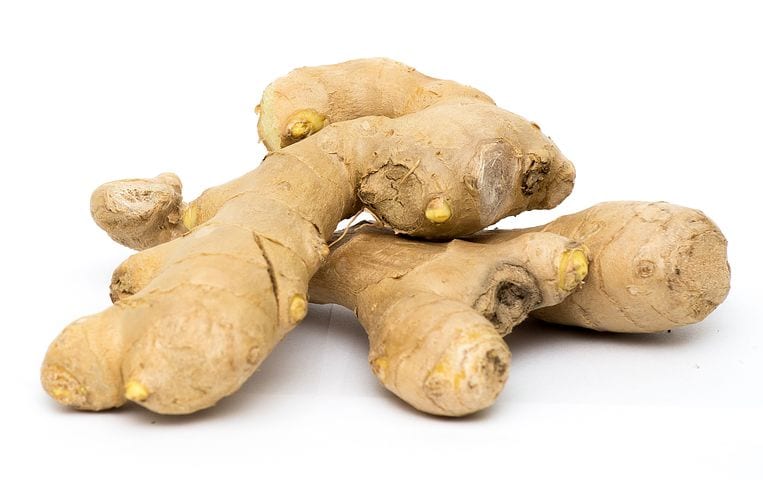Growing up in a Chinese household, my mother would give us fresh ginger to help fight off health issues such as headaches and stomach issues. She would cook with it and use it medicinally by rubbing fresh ginger to our foreheads to extract toxins or give it to us in tea when our stomachs bother us.
Ginger originated in the Himalayan foothills of Northern India. Today it is widely grown all over the world as a major commercial spice crop. Ginger used as a natural remedy for many ailments for centuries. Rich in Vitamin A, C, B5 and B6 and full of potassium, manganese, copper, and magnesium.
Science and researchers around the world are now catching up and are finding that ginger works wonders in the treatment of everything from cancer to migraines. Here are some health benefits of this powerful herb.
• Ovarian Cancer Treatment – Ginger may be a powerful weapon in the treatment of ovarian cancer. A study conducted at the University of Michigan Comprehensive Cancer Center found that ginger powder is used to induce cell death in ovarian cancer cells.
• Colon Cancer Prevention -A study at the University of Minnesota found that ginger can slow the growth of colorectal cancer cells.
• Morning and Motion Sickness – A review of several studies has concluded that ginger is just effective as vitamin B6 in the treatment of morning sickness.
• Pain and Inflammation Reducer -Study showed that ginger has anti-inflammatory properties and is a natural painkiller.
• Heartburn Relief – Used as a natural heartburn or upset stomach remedy. It makes a warm, spicy and tasty tea.
• Cold and Flu Prevention and Treatment – Used as a natural treatment for colds and flu.
• Migraine Relief – Research has shown that ginger can provide migraine relief due inflammation in blood vessels.
• Menstrual Cramp Relief – In Traditional Chinese Medicine, ginger tea with brown sugar is used in the treatment of menstrual cramps.
• Prevention of Diabetic Nephropathy – A study done on diabetic rats found that those rats given ginger had a reduced incidence of kidney damage.
Even though Ginger is a natural herb that is safe, some people may experience side effects from it when taking it in large amounts. These may include gastrointestinal symptoms such as heartburn, diarrhea, upset stomach, mouth irritation, or belching. Taking ginger in capsule form may help to alleviate some of these side effects.
Ginger Tea Recipe- Steep one piece of crushed 1 inch thick of fresh ginger into 4 cups of boiled water. Let sit for 20 minutes. Pour into a mug and sweeten by adding one teaspoon honey if desired.
When to avoid ginger: if you have gallstones, or are planning to have surgery. Another side effect of ginger may be blood-thinning. Even though there haven’t been any specific scientific studies proving this side effect, it is still a good idea to avoid ginger if you are on blood-thinning medications.
Before you add or start a new supplement to your diet, please talk to your health care provider to see if it is safe for you.










 The Healing Place LLC helps all ages to find relief from chronic pain, chronic digestive problems and balance hormones naturally. We practice COVID19 safety. Don’t forget to check on our online school HealingPlaceEnergySchool.com. Thank you.
The Healing Place LLC helps all ages to find relief from chronic pain, chronic digestive problems and balance hormones naturally. We practice COVID19 safety. Don’t forget to check on our online school HealingPlaceEnergySchool.com. Thank you.
Recent Comments